
Lotfi Aliasker Zadeh was a mathematician, computer scientist, electrical engineer, artificial intelligence researcher, and professor of computer science at the University of California, Berkeley. Zadeh is best known for proposing fuzzy mathematics, consisting of several fuzzy-related concepts: fuzzy sets, fuzzy logic, fuzzy algorithms, fuzzy semantics, fuzzy languages, fuzzy control, fuzzy systems, fuzzy probabilities, fuzzy events, and fuzzy information. Zadeh was a founding member of the Eurasian Academy.
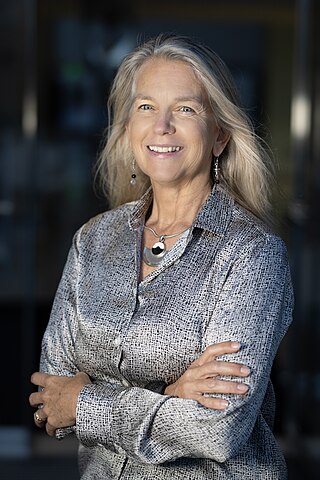
Dava J. Newman is an American aerospace engineer. She is the director of the MIT Media Lab and a former deputy administrator of NASA. Newman is the Apollo Program Professor of Aeronautics and Astronautics and Engineering Systems at the Massachusetts Institute of Technology. She has been a faculty member in the department of Aeronautics and Astronautics and MIT's School of Engineering since 1993.

Ian F. Akyildiz is a Turkish-American electrical engineer. He received his BS, MS, and PhD degrees in Electrical and Computer Engineering from the University of Erlangen-Nürnberg, Germany, in 1978, 1981 and 1984, respectively. Currently, he is the President and CTO of the Truva Inc. since March 1989. He retired from the School of Electrical and Computer Engineering (ECE) at Georgia Tech in 2021 after almost 35 years service as Ken Byers Chair Professor in Telecommunications and Chair of the Telecom group.
Johannes Gehrke is a Technical Fellow at Microsoft focusing on AI. He is an ACM Fellow, an IEEE Fellow, and he received the 2011 IEEE Computer Society Technical Achievement Award and the 2021 ACM SIGKDD Innovation Award. From 1999 to 2015, he was a faculty member in the Department of Computer Science at Cornell University, where at the time of his leaving he was the Tisch University Professor of Computer Science.
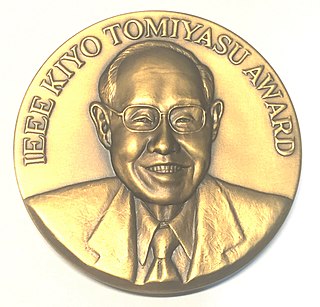
The IEEE Kiyo Tomiyasu Award is a Technical Field Award established by the IEEE Board of Directors in 2001. It is an institute level award, not a society level award. It is presented for outstanding early to mid-career contributions to technologies holding the promise of innovative applications. The prize is sponsored by Dr. Kiyo Tomiyasu, the IEEE Geoscience and Remote Sensing Society, and the IEEE Microwave Theory and Techniques Society (MTT).
The Seymour Cray Computer Engineering Award, also known as the Seymour Cray Award, is an award given by the IEEE Computer Society, to recognize significant and innovative contributions in the field of high-performance computing. The award honors scientists who exhibit the creativity demonstrated by Seymour Cray, founder of Cray Research, Inc., and an early pioneer of supercomputing. Cray was an American electrical engineer and supercomputer architect who designed a series of computers that were the fastest in the world for decades, and founded Cray Research which built many of these machines. Called "the father of supercomputing," Cray has been credited with creating the supercomputer industry. He played a key role in the invention and design of the UNIVAC 1103, a landmark high-speed computer and the first computer available for commercial use.

Abbas Ahmed Amin El Gamal, or simply Abbas El Gamal is an Egyptian-American electrical engineer, educator and entrepreneur. He is best known for his contributions to network information theory, field-programmable gate arrays (FPGAs), and CMOS imaging sensors and systems. He is the Hitachi America Professor of Engineering at Stanford University. He has founded, co-founded and served on the board of directors and technical advisory boards of several semiconductor, EDA, and biotechnology startup companies.
Sadegh Vaez-Zadeh is an Iranian politician and professor. He is currently member of the Expediency Discernment Council.
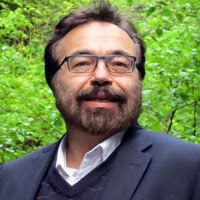
Georgios B. Giannakis is a Greek-American Computer Scientist, engineer and inventor. He has been an Endowed Chair Professor of Wireless Telecommunications, he was Director of the Digital Technology Center, and at present he is a McKnight Presidential Chair with the Department of Electrical and Computer Engineering at the University of Minnesota.
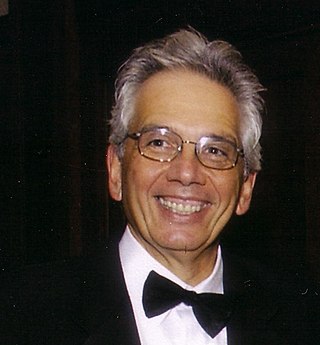
Richard D. Gitlin is an electrical engineer, inventor, research executive, and academic whose principal places of employment were Bell Labs and the University of South Florida (USF). He is known for his work on digital subscriber line (DSL), multi-code CDMA, and smart MIMO antenna technology all while at Bell Labs.
Yunhao Liu is a Chinese computer scientist. He is the Dean of Global Innovation Exchange (GIX) at Tsinghua University.
Srinivas Tadigadapa is a professor and chair of the Department of Electrical and Computer Engineering at Northeastern University in Boston, Massachusetts. From 2000 to 2017 he was a professor of electrical engineering at Penn State University. Prior to that, he was the vice president of manufacturing at Integrated Sensing Systems Inc., and was involved with the design, fabrication, packaging, reliability, and manufacturing of micromachined silicon pressure and Coriolis flow sensors.

Xin Zhang is a Distinguished Professor of Engineering at Boston University (BU).
Kourosh Kalantar-zadeh is an Australian scientist involved in research in the fields of materials sciences, electronics, and transducers. He is best known for his works on two-dimensional semiconductors, ingestible sensors and liquid metals. He led his group to the invention of an ingestible chemical sensor: human gas sensing capsule.
Bruno Murari is an Italian inventor. During his career he has patented about 200 inventions in the field of circuit design, power technologies and MEMS devices. He is the only Italian to have received the Elmer A. Sperry Award, which is awarded to those who have distinguished themselves with proven engineering contributions to advance the field of transport. He was defined "legendary analog engineer" and "father" of the BCD technology.
Mengchu Zhou is a Chinese Distinguished Professor of electrical and computer engineering in the Helen and John C. Hartmann Dept. of Electrical and Computer Engineering at New Jersey Institute of Technology (NJIT) and at Macau University of Science and Technology. He is the Chairman of IKAS Industries of Shenzhen in China. He was the project leader of a national "973" plan in China. and a Board Member of OneSmart Education Group headquartered in China.
Abhay Karandikar is an Indian educator, engineer, innovator, and administrator best known for his work in the telecommunication sector in India. Currently, he is serving as the Secretary to the Government of India in the Department of Science and Technology, Government of India from 1 October 2023 onwards. Previously, he served as the Director of Indian Institute of Technology, Kanpur from 1 April 2018 to 30 September 2023. Prior to that, Karandikar held a number of positions, including Dean, Head of the Department of the Electrical Engineering, and Institute Chair Professor at the Indian Institute of Technology, Bombay. He was one of the founding members of Telecom Standards Development Society of India and appointed as its first Vice Chairman from 2014 to 2016, and then was appointed its Chairman from 2016 to 2018. Karandikar contributed to conceptualization and establishment of new technical standards work programmes for TSDSI. In 2016, he was awarded with IEEE SA's Standards Medallion for his work to Indian Technology, Policy and Standardization with IEEE guidelines.
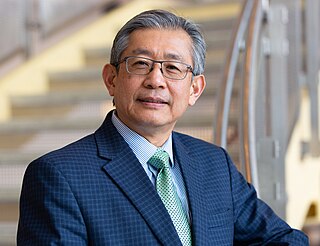
K. J. Ray Liu is an American scientist, engineer, educator, and entrepreneur. He is the founder, former Chief Executive Officer, and now Chairman and Chief Technology Officer of Origin Wireless, Inc., which pioneers artificial intelligence analytics for wireless sensing and indoor tracking.
Frank L. Lewis is an American electrical engineer, academic and researcher. He is a professor of electrical engineering, Moncrief-O’Donnell Endowed Chair, and head of Advanced Controls and Sensors Group at The University of Texas at Arlington (UTA). He is a member of UTA Academy of Distinguished Teachers and a charter member of UTA Academy of Distinguished Scholars.
Mi Zhang is a computer scientist at Ohio State University, where he is an Associate Professor of Computer Science and Engineering and the director of AIoT and Machine Learning Systems Lab. He is best known for his work in Edge AI, Artificial Intelligence of Things (AIoT), machine learning systems, and mobile health.








